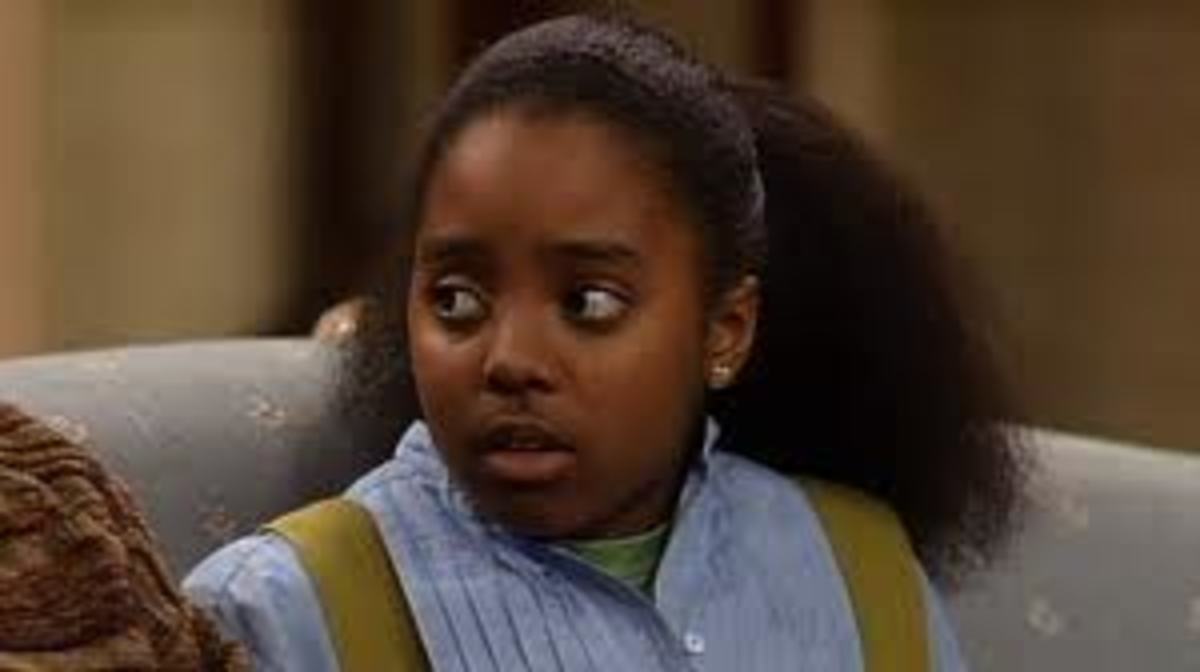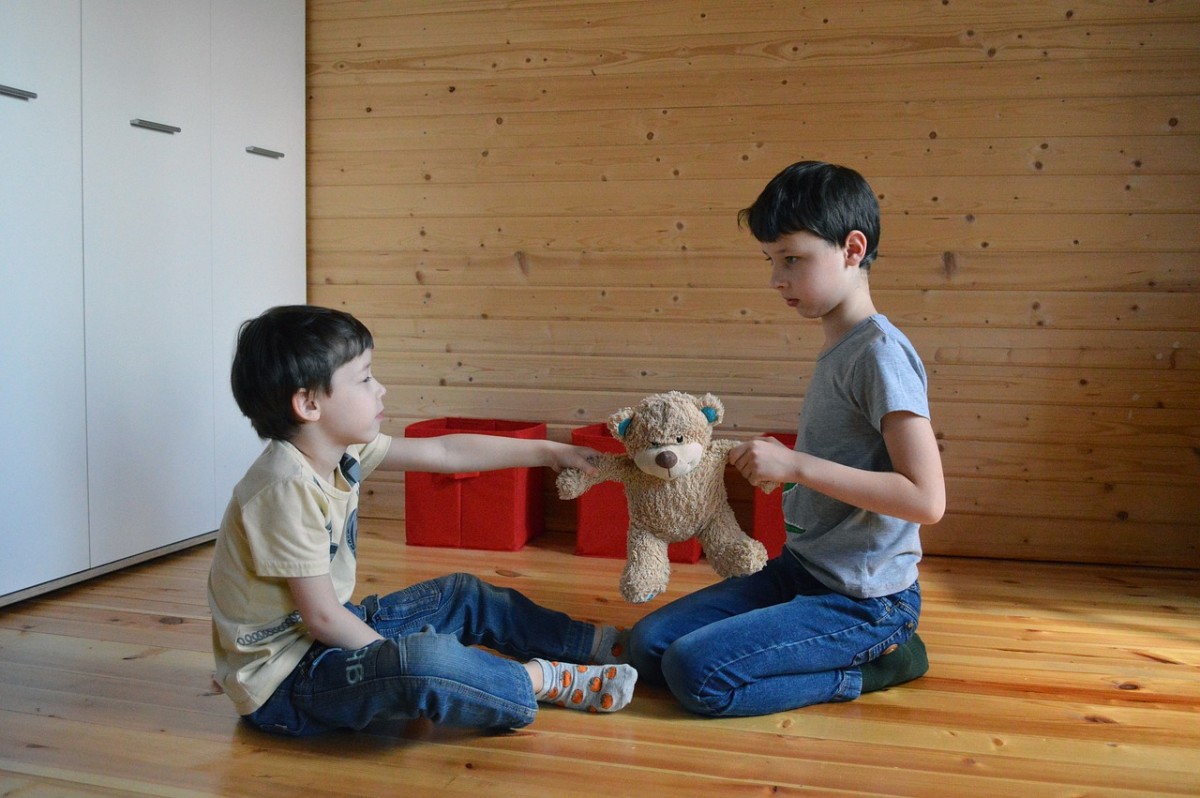Sibling Rivalry Is Quite A Commonplace Occurrence In Multichild Families!

The Phenomena of Sibling Rivalry



Birth Order & Sibling Rivalry



Other Influences Regarding Sibling Rivalry




Pluses and Minuses Regarding Sibling Rivalry


STOP That Bickering, WE Said STOP IT At Once, THIS INSTANT!!!
In the movie SOUL FOOD during a Sunday dinner at Mama Joseph's house, there was an ensuing verbal altercation between her daughters Teri and Maxine Joseph. Maxine was bantering to her sisters, Bird and Teri that the former did not have to ever worry about cooking because she could do hair while the latter simply do not know how to cook. The relationship between Teri and Maxine was intense sibling rivalry bordering on total contentiousness.
Yes, whenever there are siblings, there is rivalry. Sibling rivalry is par for the course in families where there is more than one child. In multichild families, children are constantly competing and vying for the attention and affection of their parents. They often play games of upmanship and/or other psychosocial games in order to garner parental attention.
When a sibling arrives in the family, the oldest child often feels dethroned and abandoned. This is because the oldest child was the only child once. He/she was the center of his/her parent's universe and received all the attention. Alas, there is a new arrival.
The oldest child feels now that this new arrival is going to take all the attention away from him/her. Many oldest children feel an underlying resentment of this new arrival because they feel unimportant in the eyes of their parents. Some oldest children even ask their parents to return the younger siblling back to " where he/she came from".
It is natural that oldest children feel that way since they portend that they are tossed aside so to speak. Some parents admonish the oldest child to stop acting like a baby and be less selfish, ignoring his/her needs. However, there are other parents make the oldest child feel important and include him/her in interfacing with the younger sibling/siblings.
Even though many oldest children adjust to their newly acquired sibling status, there is still competition between them and their younger sibling/siblings. Psychological studies have shown that there is often a dark side to sibling rivalry. It is routine for siblings to verbal abuse each other with name-calling.
Other siblings routinely physically abuse each other. Yes, folks, the sibling relationship is often not a pretty one and can be quite histrionically melodramatic to say the least. Other studies strongly portend that many children have low self-esteem because of incessant sibling rivalry.
There are many factors which are components in sibling rivalry. One is birth order. In many families, birth order is the main determinant in how parents treat each of their children. Some children are treated quite differentially and/or disparately while others are treated more preferentially. In many cases, it is the oldest child who is treated the more harshly and is held to a higher and more stringent standards by their parents.
Oldest children in families are often blamed for things that their younger siblings do even though they are not actually involved in the event. They are also given responsibilities at far earlier ages than their younger, especially youngest sibling/siblings are given at similar ages. Oftentimes, oldest children resent the status of their younger siblings because they believe that the latter have it much easier than they do.
Sometimes, because of the preferential treatment that the younger and/or youngest sibling/siblings receive on the part of the parents, the oldest child take out his/her resentment of the latter in many ways. Some oldest children outright bully their younger siblings. Still others use more subtle form of manipulation in revenge for the supposed attention that the younger siblings/youngest siblings receive.
The middle child is often sandwiched between the oldest and younger sibling/siblings. Studies show that the middle child in a family is often the most ignored, forgotten, and the least favorite. Many middle children feel that they do not fit into their respective family dynamic. In essence, they are the family's outsiders.
Many middle children resent their oldest/older sibling/siblings because they believe that the latter is lionized and the prince/princess of the universe. They may resent their younger/youngest sibling/siblings because the latter are adored by the parents and are adored in ways they feel that they are not. There are some middle children who become even more dominant and controlling towards their younger/youngest sibling/siblings in a bid to outdo their oldest/older sibling/siblings and to prove to their parents that they also are the responsible ones in the family.
The youngest child is of course treated the most preferentially by their parents. After all, he/she is the baby and the precious one in the family. Studies also substantiate that it is the youngest who is often the parental favorite. Yes,youngest children are the most pampered and indulged by their parents. They also can get away with things that their oldest/older sibling/siblings would be severely punished for. The youngest child is also quite a master manipulator who can artfully utilize the art of psychological gamesmanship to obtain what he/she wants.
Because of the preferential treatment that the youngest child receives, many oldest/older sibling/siblings believes that he/she is a brat and spoiled. Many youngest children are the brunt of the retaliatory treatment of their oldest/older sibling/siblings either emotionally, mentally, verbally, and/or physically. A noted, major Hollywood player noted in an interview that his older siblings routinely abused him because they portend that he received the most preferential parental treatment.
There are some parents who knowingly pit their children against each other in a bid to get their attention. They maintain that children must learn to be ruthlessly competitive in order to survive and thrive as people. It is de rigueur for such families to always be adversarial towards each other in one way or another. To these parents, it is nothing better than the sibling environment to teach children to compete against each other with the strongest winning and gaining their parental favor.
Many siblings thrive in such a competitive environment. Instead of viewing their sibling/siblings as a fellow family member in arms, they view each other as adversaries to be crushed and/or conquered. They are always trying to best each other whether it is sports, academics, and/or related events. In such families, family life is indeed quite a perilous jungle where naked survival at all costs is highly valued.
Favoritism is another issue which causes sibling rivalry. When one child is favored over other children, there is a natural resentment by the other children in the family. While the favored child feels that he/she is special, the other children in the family believe that they are totally nonentities. Of course, they are going to take out their resentment on the favored child. Sometimes, they watch for the foibles of the favorite sibling/siblings and letting the parent know of such with the anticipation that the latter will somewhat fall from parental grace.
As there is favoritism, there is the unfavored child. Of course the unfavored child feels like he/she is nothing. He/she will go though extreme lengths with his/her sibling/siblings to obtain a semblance of parental love and/or acceptance. Many unfavored sibling/siblings often retaliate against the more favorite and/or other sibling/siblings in revenge for being an outcast in their respective families. There are others who become "the perfect child" in comparison to his/her sibling/siblings in order to acquire parental favor and attention.
While there are a few benefits of sibling rivalry such as learning to interface with all types of people and to handle difficult interpersonal situations, there are more darker disadvantages. There are some siblings who believe that they will never be sufficient because of the intense competition they endured with their siblings for parental attention. Many siblings who were treated more preferentially and/or received more parental attention, felt entitled and believed that they were better than the siblings who did not receive such parental attention.
Many siblings are psychologically damaged because of the constant bantering and bickering they endured. Yes, there are siblings who actually hate each other because of the constant competing for parental approval and attention from childhood. There are people who actually wish that they did not have siblings because of the intense sibling dynamics they encountered as children.
In summation, sibling rivalry is quite commonplace in families where there is more than one child. In multichild families, children routinely must compete with each other for parental attention. Components such as birth order and the issues of favoritism and being the unfavored child are influential factors in the sibling rivalry dynamic.
While there are some benefits in sibling rivalry, there are more negative disadvantages such as not feeling adequate in comparison to your siblings. Many siblings suffer from low self-esteem because of the constant competition and gamesmanship between them. Sadly, the issue of sibling rivalry is not going to go away and is here to stay.
© 2012 Grace Marguerite Williams








